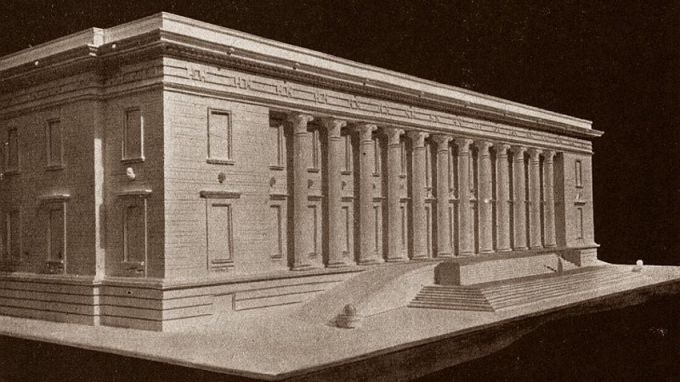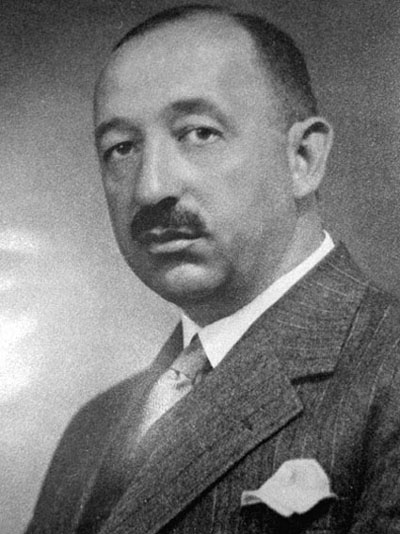
24th May is a feast with no analogue across the world, a day when Bulgarians celebrate their alphabet, education and culture. How was the celebration held in 1939? We go back in time in our rubric BNR 80 Years in 80 Weeks based on recordings from the Bulgarian National Radio Golden Archives. They revive the atmosphere of the celebrations when a speech was made by PM Bogdan Filov:
 „It has been repeatedly assumed that only few nations could rival the Bulgarian nation in either the great attention it pays to matters of spiritual culture or in the value of its contribution in this regard. This nation has delivered solid proof that it is committed to these spiritual values that can alone guarantee a nation the right of its existence as a free entity among other nations, justify its historical being and allow it to play its predestined historical role. This is the main context in which as I already said the Week of Bulgarian Books opens today.”
„It has been repeatedly assumed that only few nations could rival the Bulgarian nation in either the great attention it pays to matters of spiritual culture or in the value of its contribution in this regard. This nation has delivered solid proof that it is committed to these spiritual values that can alone guarantee a nation the right of its existence as a free entity among other nations, justify its historical being and allow it to play its predestined historical role. This is the main context in which as I already said the Week of Bulgarian Books opens today.”
Bogdan Filov was pathetic with a good reason because in the 1920s and 1930s a lot of effort was put into the development of Bulgarian education. A Public Education Act was passed, the number of elementary schools rose, new academies opened doors like the Academy of Music and the Academy of Arts, and the Polytechnic University started admission of students.
The year 1939 saw the start of construction works of the new premises of the National Library. We revisit this event again with the words of Bogdan Filov:
„Apart from this, there is a further circumstance this year that adds greater relevance to the Week of Bulgarian Books that I cannot but emphasize. There is broad consensus that it is high time to cater for a worthy repository of Bulgarian books where they should be kept and where various initiatives for their use and promotion should be generated. This issue has been raised many times and we have seen many vows for a building of the national library in the capital city, but it is only this year that you can see how this building is rising next to the University – the foremost center of Bulgarian education and culture.”
The Bulgarian National Library was the oldest cultural institution in the country after its liberation. It was founded in 1879, a year after the Liberation, by teacher Mikhail Bobotinov. Its new home built in 1939 unfortunately collapsed in the 1944 shelling of Sofia. In 1946 work started to rebuild the library designed by architects Ivan Vasiliov and Dimitar Tsolov.
In our day the archives of the National Library keep close to eight million registered units. Apart from books it is also the home of periodicals, cartographic and electronic documents. It has a dedicated section with manuscripts with 5550 units. The repository for incunabula, rare and valuable books has some 19,000 books and periodicals printed from 15 to 21 c. Interestingly, the National Library keeps one of the richest collections of Ottoman archives. Documents in Ottoman Turkish, Arabic and Persian come to roughly one million sheets in close to 500 thousand units.
And finally, another curious fact about Bogdan Filov: he was quite rare in the Bulgarian political class with a biography consistent with Bulgarian culture and education. In fact, politics occupied a small corner in his CV. Remembered as prime minister and reagent of underage King Simeon II (1943-1944), he was in fact a renowned archeologist and art historian. Bogdan Filov was the founder of the Archaeological Institute that pioneered systemic archeological excavations in this country and was the president of the Bulgarian Academy of Sciences from 1937 until 1944.
English Daniela Konstantinova
Irina from Tobacco , Zhana from The Inspector and the Night , Lisa from The Peach Thief , Anna from Carambola , Tinka from The Boy Goes Away.. . Her film roles are over 50, but she always claimed that her real passion was..
Several dozens of medical workers were arrested in Benghazi on 9 February 1999, 23 Bulgarians among them. Most of the people were released in a few days. Nurses Kristiana Valcheva, Nassy Nenova, Valentina Siropulo, Valya Chervenyashka..
Todor Zhivkov was born on 7 September 1911 in Pravets and, as of 1932 was a member of the Bulgarian Workers’ Party (communists). In 1948 he became a member of the Bulgarian Communist Party Central Committee and, in 1954, was elected..

+359 2 9336 661
